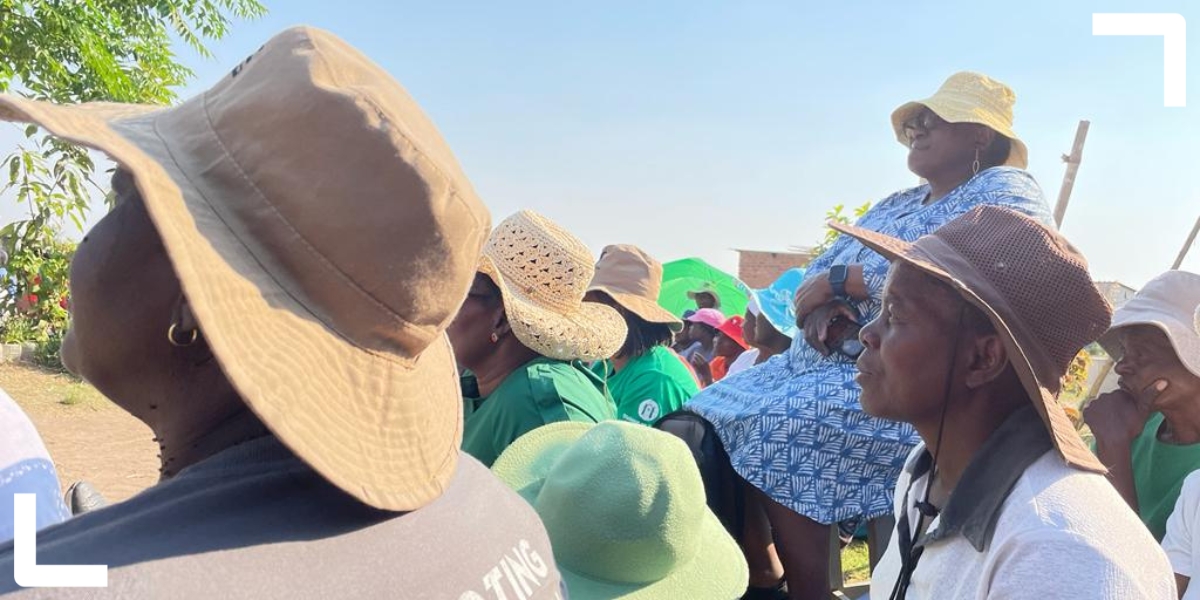Building a shared approach to action research
This is the first in a series of blog posts exploring the practicalities and experiences of action research. Building on experiences from across the consortium, we hope that it provides a useful guide for both researchers and community organisations, around undertaking effective participatory action research projects.
The series will cover examples of action research projects that ACRC members have been involved in previously, including lessons learned, as well as practical guidance around conducting action research, co-producing knowledge and overcoming typical challenges.
By Rosebella Apollo, ACRC research uptake officer, and Irene Vance, ACRC head of project delivery
The ACRC programme is now at a stage where several cities will start implementing action research projects. We are excited to have four pilot projects underway in Harare, Nairobi, Mogadishu and Maiduguri, with more in the pipeline to start very soon.
We envisage that these initiatives – based on co-design and co-production – will build new knowledge and test innovative solutions, to address critical complex challenges in African cities.
But what exactly do we mean when we talk about “action research”?
In contrast to traditional research approaches, participatory action research places the community at the centre of the research process. This means they are involved in identifying and prioritising the problem, formulating research questions and analysing the findings.
This approach provides a range of options for solutions and enables participants to effect change in ways that are meaningful to their communities. Often referred to as co-creation, co-design or co-production, all terms underscore that this is a participatory process.
Ultimately, the action research we are undertaking seeks to catalyse urban transformation and urban reforms, and to enhance service delivery and equitable local governance systems.
Action vs traditional research
Back in November 2022, we held a workshop in Nairobi, which brought academic and community researchers together with practitioners, to reflect on their own experiences of conducting action research. The main aims were to develop a good understanding of what action research is/is not, reflect on past projects to understand what worked (and what didn’t), and develop a shared methodological approach to action research for ACRC, rooted in decoloniality.
During the workshop, participants were asked to share their thoughts around what action research is and, crucially, what it isn’t. Here are some of the responses:
Action research is not… |
Action research is… |
| ❌ Top down or prescriptive. | ✅ Based on the premise that all stakeholders whose lives are affected by the problem under study are actively involved in the process. |
| ❌ A linear process, one-sided, designed by external experts who ‘parachuteʼ in and out. | ✅ An iterative process, involving communities, various interest groups and professionals in the collaborative design of the research questions, data collection and analysis. |
| ❌ Passive or a case study (a case study may focus on observing and analysing, but may not involve the ‘subjectsʼ of the enquiry). | ✅ Conducted to address a particular problem, and provides an actionable pathway to tackle the problem, testing various pathways for solutions. |
| ❌ Research for action versus action research. | ✅ Focused simultaneously on research and action. |
Of course, the nature of research means that there are some commonalities in aims and outcomes between action research and more traditional approaches. But as these responses show, there are key differences too – some obvious, some more nuanced.
In the coming weeks, this blog series will explore what these principles look like in reality, as we share examples of past initiatives and illustrate practice emerging from our pilot projects, as teams co-create and craft their action research processes. Topics will include participatory learning, action methods, working with communities and managing expectations, and collaborating across multiple sectors to drive policy change.
If you can’t wait for the next blog instalments, you can find all this and more in our briefing paper: “Building a shared approach to action research”.
Header photo credit: Diana Mitlin. Planning action research in Harare, Zimbabwe.
The African Cities blog is licensed under Creative Commons Attribution-NonCommercial-NoDerivatives 4.0 International (CC BY-NC-ND 4.0), which means you are welcome to repost this content as long as you provide full credit and a link to this original post.


